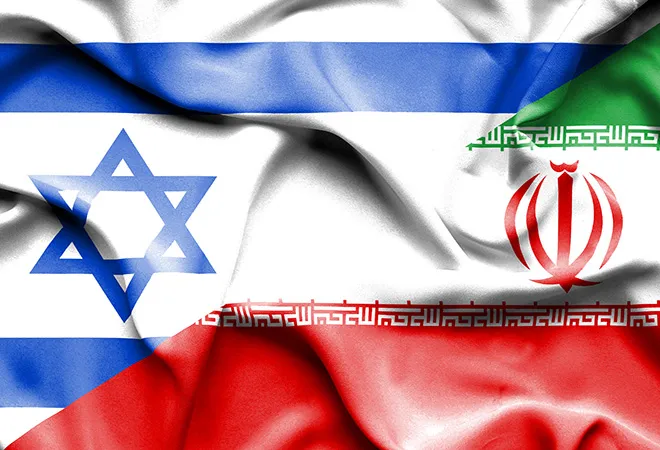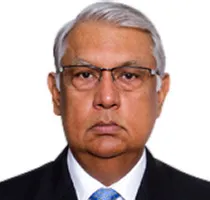The recent assassination of Iran’s top nuclear scientist, Mohsen Fakhrizadeh, has ignited another round in the proxy war between the two countries that have been sworn enemies ever since the Mullahs took over power in Tehran after the 1979 Iranian revolution.
Predictably, the Iranian leadership has pointed the finger of suspicion at Israel for the assassination that took place 65 km outside the Iranian capital, when a motorcade ferrying the nuclear scientist on a highway was first blasted by a car bomb and then came under direct gunfire by car- and motorcycle-borne assassins. There can be little doubt that the brazen attack was meticulously planned.
The attackers are yet to be identified. The Iranian dissident organisation Mujahedin-e-Khalq has cropped up as a possible perpetrator that mounted this assassination. Israeli PM Benjamin Netanyahu had publicly named the Iranian scientist in a presentation on Iran’s nuclear programme in April 2018. Israel believes he is the mastermind behind Iran’s nuclear weapons programme.
Recent reports indicate that US President Trump had been advised not to attack Iran’s nuclear facilities as this would trigger a wider conflagration in West Asia. Any US attack will also complicate matters for the incoming Biden administration. Israel has strenuously opposed Iran’s nuclear programme and put in place plans to stop Tehran from acquiring nuclear weapons by any means.
This assassination is another milestone in Israel’s plan. This is not the first time that Iranian nuclear scientists have been assassinated. Between 2010 and 2012, four scientists were killed; while no one claimed responsibility, fingers were pointed at Israel. The most audacious attack was in 2018, when armed men broke into a vault in a warehouse in Iran and carted away reams of documents on Iran’s nuclear programme.
Iranian leaders have vowed to take revenge and continue with the nuclear programme that has been in the crosshairs of Israel and the US ever since it began. Israeli officials have denied any involvement, as per the standard operating procedure. In an already volatile West Asia, this killing, coming after the assassination in Baghdad in January this year by America of Gen. Qasem Soleimani, the Commander of the Islamic Revolutionary Guard Corps (IRGC), raises tensions once again with unforeseen consequences.
The EU and some other countries have called the assassination a criminal act and called for restraint. Sections of the US media have quoted a former CIA director as having said that Israel was behind the assassination, which he has called highly reckless and a criminal act. This could be another standard operation procedure, in which former senior US intelligence officials point a finger at Israel but the latter denies all knowledge.
Intriguingly, the assassination came days after PM Netanyahu’s secret trip to Saudi Arabia, where he reportedly met Muhammad bin Salman, the Saudi Crown Prince, and Mike Pompeo, the US Secretary of State. Both Israel and the US have been monitoring Iran’s nuclear programme after the Trump administration abandoned the nuclear deal, the JCPOA, in 2018.
Iran has since raised production of Low Enriched Uranium (LEU), a vital ingredient in nuclear power generation and nuclear weapons, much above the limit prescribed by the JCPOA. Iran has always maintained that as a signatory to the NPT, its nuclear programme is entirely peaceful and its leadership has affirmed that Iran shall never produce such weapons. The problem is no one believes Iran. Israel had staunchly opposed the JCPOA which, according to it, had merely postponed Iran’s march towards nuclear weapons capability. Israel has no interest in the revival of the JCPOA and this assassination can be seen as creating hurdles for the new Biden administration to rejoin the agreement.
Over the years, tit-for-tat attacks by Iran and Israel have continued. Iran launched attacks on Israeli targets, including a diplomat’s wife, in New Delhi in 2012; Iranian agents botched up an attack in Bangkok and a potential strike was thwarted in Tbilisi. For decades, Iran has armed the Hezbollah in Lebanon and Palestinian organisations Islamic Jihad and Hamas to attack Israel, though the motivation for these outfits is their fight against Israel for the Palestinian cause.
Currently, an Iranian diplomat is on trial in Brussels for his complicity in planting a bomb in Paris to target anti-Iran demonstrators. Iran may have vowed retaliation as part of its rhetorical posturing to satisfy domestic public opinion. But by retaliating, it risks scuttling a deal with the Biden administration and extricating the nation from the crippling sanctions that have debilitated its economy.
The hardline sections of the Iranian media are calling for an attack on Haifa, the port city in north Israel on the Mediterranean coast. Pragmatists in Iran would be calling for restraint, as Tehran wrestles with the dilemma of retaliation at a time when Biden is on the cusp of taking over from Trump. Iran must be hoping that the new administration will live up to its declared campaign promise of reviving the JCPOA. Biden has already indicated his policy on the pact, by naming Antony Blinken, a strong supporter of the JCPOA, as the incoming US Secretary of State.
Iran has to deal with domestic public opinion that is questioning its leadership about the hollowness of its superior intelligence capabilities. But it is unlikely to retaliate in a knee-jerk mode and has already declared that it will not fall into any such trap. It has vowed to increase activity on its nuclear programme that has reached a stage where it is not dependent on one scientist.
While India has not reacted to the assassination, Trump’s trashing of the JCPOA reduced India’s space for manoeuvre in view of US sanctions. India was forced to reduce oil imports to zero from one of its leading suppliers. Financial sanctions also deterred many companies from dealing with Iran. Hence, India would prefer removal of sanctions on oil imports and other financial curbs.
Sanctions on Iran are directly linked to the rejuvenation of the JCPOA with American participation. Iran-US negotiations on this issue, when it happens, will be long-drawn, complex and difficult, because it will hinge on how far back Iran would be willing to roll back its nuclear programme.
This commentary originally appeared in The New Indian Express.
The views expressed above belong to the author(s). ORF research and analyses now available on Telegram! Click here to access our curated content — blogs, longforms and interviews.




 PREV
PREV


